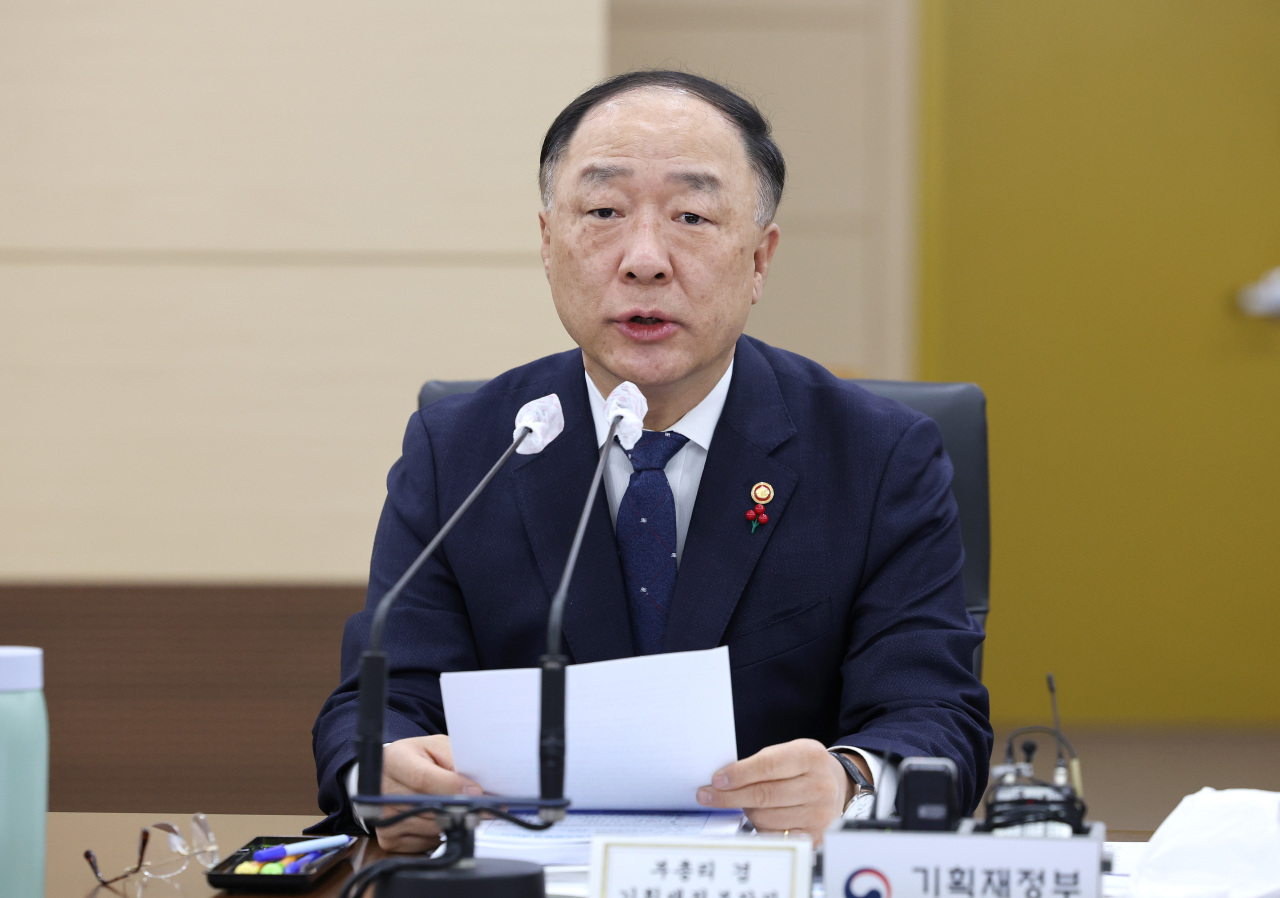 |
Finance Minister Hong Nam-ki speaks at a ministerial meeting for external economic policies at Government Complex Sejong, Tuesday. (Yonhap) |
SEJONG -- South Korea’s chief economic policymaker on Tuesday has confirmed the government’s intention to come up with measures to win developed market status from Morgan Stanley Capital International.
The government has pushed for continuous attempts to campaign for Korea’s capital market -- such as stock and foreign exchange markets -- to be included in MSCI’s Developed Markets Indexes. Deputy Prime Minister and Finance Minister Hong Nam-ki commented on investors’ accessibility to the currency market.
At a ministerial meeting for external economic policies in Sejong, Hong said that the government is planning “to provide foreign investors with easier accessibility to the foreign exchange market.”
Hong said the government “would push for extension of the foreign currency trading market and allowance of overseas institutions’ participation of the local foreign exchange market.”
He clarified that the policy is aimed at gaining developed market status.
According to researchers at home and abroad, MSCI looks into three key sectors when deciding on the market status upgrade -- a nation’s economic scale, stock market scale and market accessibility.
A core issue for Korea is market accessibility. MSCI had asked the government to open a 24-hour offshore currency market and ease regulations on the registration of overseas investors, as a prerequisite for upgrading its market status.
Korea has taken a lukewarm position on the offshore currency markets for decades since the 1997 currency crisis. MSCI earlier cited the absence of an offshore currency market for the Korean currency as one of the main reasons for its decision to retain Asia‘s fourth-largest economy in the emerging market category.
Recently, it seems that the Korean government has finally changed its position on the matter. Hong had said the government was moving to positively review the possibility of launching the 24-hour offshore currency market, from the current trading hours of 9 a.m. to 3:30 p.m.
Earlier, Hong said that Korea “deserves to win the developed market status in light of its economic size and foreign investors’ views on the country.”
At the ministerial meeting, Hong also said the government would submit an application in April for entry into a mega Asia-Pacific free trade agreement involving 11 member countries.
The government plans to launch social discussions with related sectors to accede to the Comprehensive and Progressive Agreement for Trans-Pacific Partnership as part of its efforts to expand mega FTAs in the Asia-Pacific region.
The CPTPP is the renegotiated version of the Trans-Pacific Partnership led by the former US President Barack Obama administration.
The multilateral trade pact, launched in December 2018, has been signed by 11 countries -- Japan, Brunei, Singapore, Malaysia, Vietnam, Canada, Mexico, Peru, Chile, New Zealand and Australia.
Korea’s willingness toward the pact came three months after China submitted an application to accede to the CPTPP in a surprising move, with Taiwan following suit.
The collective trade volume by the 11 nations participating in the CPTPP had reached about $5.7 trillion as of 2019, making up 15.2 percent of the total global trade figure.
Korea’s potential accession to the CPTPP could be a major boost to expand its trade portfolio in addition to its planned implementation of the Regional Comprehensive Economic Partnership.
By Kim Yon-se (
kys@heraldcorp.com)








